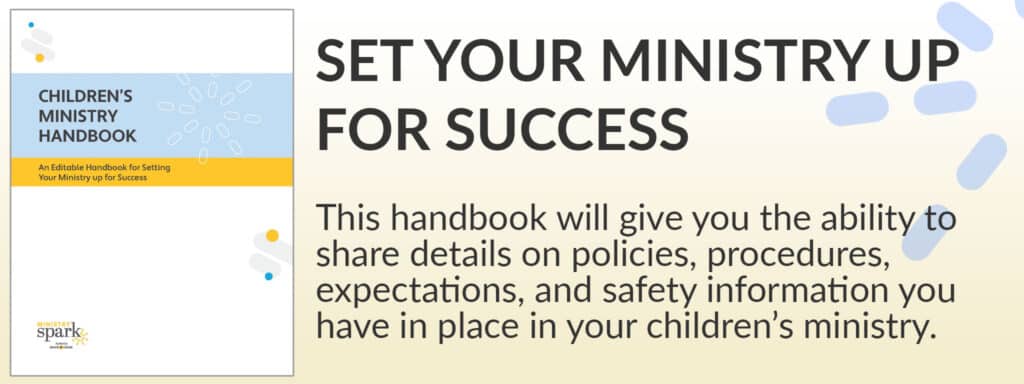E-VAL-U-ATE: To judge or determine the significance, worth, or quality of.
Evaluating your children’s ministry is one of those things that can be tedious, time consuming, and certainly not very glamorous, but so necessary to the success of your ministry.
And the reality is that the evaluation of your ministry is happening constantly, whether you have an active and intentional evaluation system in place or not.
Who evaluates children’s ministries?
Children
Did you realize that the kids in your ministry evaluate what’s happening every week? And many times, they choose, whether subconsciously or not, to engage or check out based on what’s taking place.
Children notice how they are treated, what they are learning, if they are having fun, and how excited they feel to be part of the group. All of these things are important to their engagement.

Parents
Parents are also evaluating your children’s ministry, whether they share that with you or not. The majority of parents are concerned with how their children are treated, what their children are learning, and how they themselves are connected with when they engage with the ministry. And today, safety is highly important. Many parents may be thinking through scenarios that you may not be.
Many parents pay close attention to their children’s emotions when talking about the children’s ministry and many care deeply about the spiritual formation taking place, even if they don’t share that with us.
So, make sure you are communicating with parents regularly. From the physical to the spiritual, these parents care deeply about the well-being of their children.
Visiting Families
Whether we like it or not, visitors begin evaluating our ministries as soon as they hit the parking lot. So, it’s really important that—from the welcome team to the classroom leader—everyone is on the same page in welcoming new families.
And, on top of that, it’s important that our facilities are clean and our check-in process is smooth.
The most important thing about evaluation is that you make it a priority!
Volunteers and Staff
Even if they are quiet about it, our volunteers and staff members are evaluating our leadership and our ministries. They evaluate everything from vision, to communication, to serving standards, to personal experiences, and more.
It’s important we’re creating a culture that is one of teamwork. And it’s important that we have standards to measure up against. Does your ministry have a handbook?


Evaluate Your Children’s Ministry
So, as we’ve seen, evaluation is happening all the time. And we didn’t mention your leadership! This is one reason why being active and intentional about evaluating your children’s ministry is critical. The other reason is that we cannot improve if we don’t understand our current condition.
When do we evaluate?
Always! It’s important to pay attention as you walk around while ministry is taking place. As you speak with parents, leaders, and children, pay attention to the things they are saying (and maybe not saying or saying with body language). And it’s important to have time with your team to evaluate at regular intervals, whether after services and big events, or whether monthly, quarterly, or annually.

What do we evaluate?
Everything!
Here are some areas that you might want to start with:
- Leadership
- Vision
- Mission and Goals
- Staff Recruiting and Assimilation
- Staff Training and Nurturing
- Weekly Programming
- Family and Parent Partnerships
- Administrations
- Curriculum and Resources
- Outreach and Special Events
- Facilities and Safety
- Spiritual Formation
How do we evaluate our children’s ministries?
It’s important to evaluate your ministry in multiple ways. Here are some ideas for you as you move forward:
- Personal Observation
- Surveys
- Response Cards
- Informal Conversations
- Formal Interviews and Meetings
- Focus Groups
- Feedback from Leaders and Volunteers
- Incognito Inspectors (Someone Unknown to Your Ministry) with Debriefs
There are so many ways to check in on the health of your ministry. Get creative with how you collect feedback.
The most important thing about evaluation is that you make it a priority!







